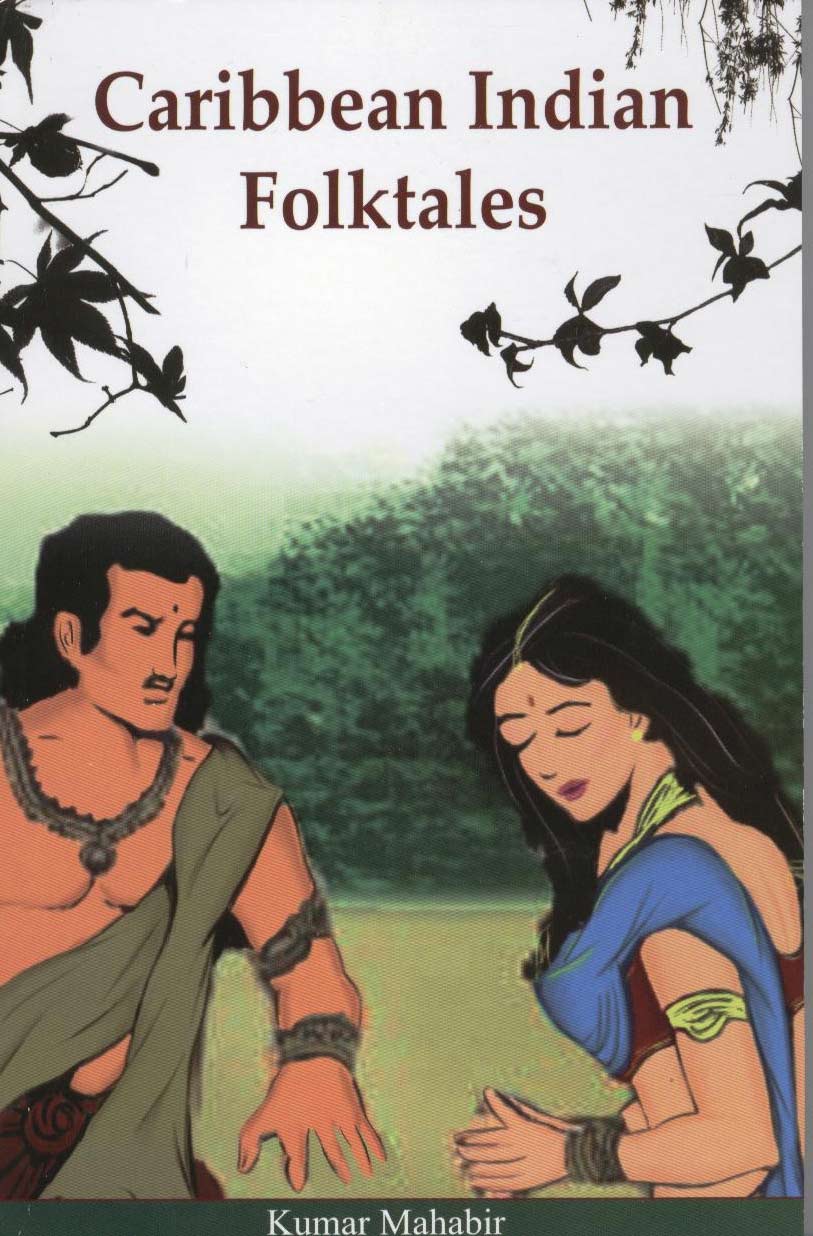This is a fascinating book of folktales current among the Indian diaspora in the Caribbean Islands. It is a very valuable addition to Indian Studies including the study of Indian English. The blood and sweat of the indentured Indian labor have not only enriched the land and lives in the Caribbean but have also made a great contribution to Indian literature and civilization. For the first time we have folktales of the Indian Diaspora in the Caribbean narrated in their common local idiom. Standard English translation of the narratives are also provided to help us understand and appreciate the meaning and strength of the morals, etc.
Caribbean Indian Folktales is an interesting, authentic and useful book. It is the first and largest collection of its kind to be written in the original English dialect of the storytellers. Each tale is accompanied by a Standard English version which has been sensitively trnaslated to retain the spirit and rhythm of the original narration. The book consists of a collection of 25 stories which have been passed down from generation to generation by word of mouth from India to the Caribbean over a century and a half. The tales were tape-recorded from tradition-bearers in Trinidad, Guyana, Jamaica, St. Lucia and Grenada since 1980.The book is actually designed also as a heritage learner's textbook of folktales! For each of the 25 folktales, four different kinds of exercises are provided:
- Comprehension Questions
- Discussion and Analysis
- Group Activity
- Individual Work
Each folktale is very well illustrated. Illustrations look more like drawings done in India. May be the next edition will have more Caribbean flavor to these illustrations.
The book is published by Chakra Publishing House, Swami Avenue, Don Miguel Road, San Juan, Trinidad and Tobago, West Indies. The author of the book may be contacted at mahab@tstt.net.tt
or at dmahabir@gmail.com
. Unfortunately the book is not listed in Amazon.com, and I do hope that the author will take the intiative in this regard so that many overseas Indians and Indians in India may be interested in buying this interesting book.I earnestly hope that such efforts to preserve the Indian folktales among the Indian Diaspora will be taken up by scholars around the world.
Great Work, Dr. Mahabir. And many thanks to you for this valuable addition to Indian Studies including the study of Indian English.
Herebelow I reproduce a very short folktale from the book. This is not truly representative of the tales presented in the book. Other tales talk about fate, faithfulness, hardwork, obedience, good behavior, pleasures and pains of this life, and happiness in life beyond. One can easily feel the Indian consciousness that traveled far under adverse circumstances and yet survived hardship to see good times now!
UNLUCKY!
Raja [King] Bikharma and his wife arranged to go to Pradesh,and on their way they went into a forest. As they travelled, they ate satuaa [sweetened ground grains or corn] and dhouri [balls of sweetened ground rice]. But after travelling for so many days, the satuaa and the dhouri ran short.
Raja Bikharma told the rani [queen]: "Hamloag kay baray bhooka lagal," which means, "We are so hungry and we must get something to eat."
They were so unlucky that neither of them found any fruit. However, they found a little pond where they caught a fish. Apart from catching the fish in the pond, they also got some dry bush and leaves and started a fire in which they roasted the fish.
While the fish was roasting, Raja Bikharma and the rani bathed and washed their faces. When they were about to eat the fish, before they could pick it up, the roasted fish suddenly came alive and jumped into the water.
When the fish jumped into the water, Raja Bikharma turned to the east and prayed to God and said, "That is why my name is Raja Bikharma. Bikharma means luckless. I am truly unlucky."
And so that's why, "machree jal may kuola gayaa", [fishes jump in the water].
